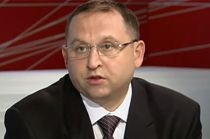Ru
|
Eng
Expert: Rosatom will start building new reactors at the Hungarian nuclear power plant Paks
10.03.2017

The European Commission has raised no objections to using state support for building new power-generating units at the Paks nuclear power plant in Hungary. The relevant statement was released in Brussels on 6 March. Thus, the final obstacle to building the Paks-2 nuclear power plant using resources of Rosatom and Hungarian companies has been removed. The statement reads that the European Commission’s investigation has found out that the financing of construction of two new power-generating units at the Paks nuclear power plant includes state support. Since Hungary promised to limit violations of competition rules, the European Commission has concluded that state support for the project will not contradict the European Union’s requirements.
Commenting on the decision, Ivan Andriyevsky, Chairman of the Board of Directors of 2K Engineering Company, said: “Rosatom’s Paks-2 nuclear power plant project in Hungary was thoroughly examined by the European Union’s regulatory bodies for more than two years. As a result, the project has been greenlighted. Once again the fact testifies to Hungary’s insistence on developing its nuclear energy industry together with Russia and to Rosatom’s excellent competence in implementing overseas projects. I am not talking about technological, ecological, and technical capabilities of Rosatom. The Russian company is one of the world’s leaders in these fields and is at the forefront of developing peaceful uses of nuclear technologies. I am talking about legal support for contracts, about negotiations and schemes for implementing overseas projects. The European regulators have not found any fault with those.”
The Paks-2 project has become another overseas project Rosatom has started implementing. As a result of the project Hungary will more than double the amount of electricity generated by nuclear power plants, thus creating the foundation for raising the investment appeal of its economy.
All the approvals Rosatom has received for the Paks-2 project will allow the Russian company to start building new power-generating units soon. Preparations are already in progress. It is obvious that the project’s implementation will begin next year in strict accordance with the schedule.
ANALYTICS
30.08.2023
21.03.2023
30.08.2021
02.07.2021
23.06.2021
10.06.2021
04.06.2021
03.06.2021
20.05.2021
15.05.2021













